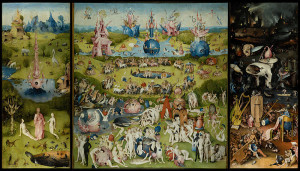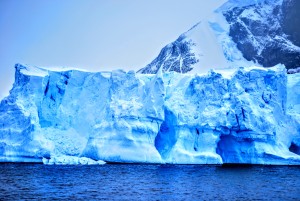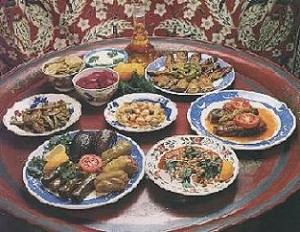
The Mandarin Oriental Hotel Kuala Lumpur, Malaysia — part of a trend? Photo courtesy of Mandarin Oriental.
First, let’s establish one thing: I’m not a particularly affluent traveler, certainly by U.S. standards. I don’t really know where I fall in the spectrum of what I spend roaming the world , but I know that when I’m traveling on my own dime price is definitely an object.
Sure, I like to stay in a five-star hotel, dine in a Michelin three-star restaurant or fly first class as much as the next guy, but only if someone else is paying for it. As a consequence, I’ve stayed in some real dumps, eaten any number of meals in greasy spoons, and sat cramped in coach for up to 14 hours at a time on hundreds of flights, all to feed my travel addiction or in furtherance of getting a story when I wasn’t being hosted or a magazine wasn’t paying expenses.
So I’ve seen both sides of the equation and have concluded that I’d rather use my own cash, such as it is, to get to more places on a budget than to travel to fewer places in luxury.
But that’s my own preference based on my own circumstances. Many baby boomers, though, are indeed affluent travelers, and are willing to spend their money to travel in style — and I say more power to them, because it keeps the industry that supports my writing humming along.
U.S travelers in the top five percent of income (making over $200,000 per year or with a net worth of $2 million or more) are said to spend some $800 billion a year on business or leisure travel.
All this is to say that I’m always curious to know what truly affluent travelers are up to in their travel plans. Like other travel writers, it’s important for me to follow the money, as it were, and anticipate where readers of glossy travel magazines want to go next and why.
So I was interested to read that a speaker at the recent Luxury Travel Advisor‘s Ultra Summit in Dana Point, California, had come up with 14 “trends and insights involving the luxury travel industry.”
And I was heartened to learn that when you strip away some of the luxury travel spin, that luxury travelers are interested in many of the same things I am — they just get to sleep on 800 thread count Egyptian sheets while doing them, while I’m more likely to be found at the Super 8 (which, I’m guessing, took its name from the 8-thread count sheets).
Experiential travel, epic journeys, transformative travel, relaxing massages — they’re all on the front burner for the affluent, as they are for me. Of course, as you might imagine, there are a few trends I can’t really relate to, or, to extend the metaphor, would be relegated to my kitchen microwave.
The Very Latest Trends and Insights
Chris Fair, president of Resonance Consultancy, was the speaker at the Ultra Summit who compiled the list of 14 “trends and insights” based on interviews with some 1,667 “top five percent” travelers.
Why 14 trends and insights? I have no idea, except that I’ve read that for some reason oddball numbers like “16 Places to Go in 2016” lists draw more readers than the more usual “15 Places” lists — so maybe “14” fits into that slot. Or, to be fair to Mr. Fair, maybe there are only 14 trends and insights worth mentioning.
What’s Resonance Consultancy? According to their website, they “create development strategies, plans and brands that shape the future of places around the world. Our team has advised developers, destinations, communities, cities and governments in more than 70 countries.” So they must know their stuff.

“The Garden of Earthly Delights” by Hieronymus Bosch. Art is the new food — unless you’re really hungry.
Here is his list, courtesy of Luxury Travel Advisor (which hosted the summit and keeps affluent travelers up to date on destinations and doings), with my comments following in parentheses:
- Affluent travelers want experiences, not products. (As do I!– though the occasional swag is welcome, such as a souvenir T-shirt.)
- Discerning travelers are seeking epic journeys that they can tell stories about. (Yes! Unless, of course, they want to join the all-too-growing ranks of travel bloggers.)
- The idea of “transformative travel” is taking shape, meaning that since affluent travelers have been to many places and own many products, travel needs to continue to stimulate and engage. (The old “been there, done that, I already have a dresser full of tacky T-shirts” canard, but I can’t argue with the notion of transformative travel as stimulating and engaging. So, so far his first three trends match my own.)
- “Art is the new food.” People are traveling for art fairs (think Art Basel), museums and major exhibits, just as they travel for fine cuisine. (Not sure if this is a “trend” or an “insight.” My concern here is that his 2017 list will feature “____ is the new art” — fill in the blank as you wish and you too can be a high-paid consultant. Besides, haven’t fine art museums always been jammed, just like restaurants? And frankly, nothing will ever be the “new food.” Food is forever.)
- Safety is important to travelers. Those seeking a luxury trip will seek out destinations they perceive to be secure. (As we used to say a few decades back: Duh.)
- People are visiting urban resorts more often for vacation. Cities have become popular destinations for their fine dining, great hotels and sophisticated cultural offerings. (I’m not sure this is a particularly cutting-edge insight, but it is a long-range trend — and has been for quite a while, as most long-range trends are.)
- An influx of Asian influence is affecting the travel industry; more Asian travel brands becoming popular with the top one percent and five percent of the population (think Mandarin Oriental and Peninsula). (Chinese are definitely traveling more — a lot more — but I’m not sure they’re the ones staying at the Mandarin Oriental. Or is something else driving the Asian influence? And haven’t affluent travelers always patronized the Mandarin Oriental and Peninsula hotels?)
- Affluent consumers are traveling together, in fact, the wealthiest travelers are vacationing more frequently with friends than with children. (So affluent children are doing what, staying home with granny? I think it’s more likely that granny is out traveling with her affluent grandkids and having a blast. But sure, baby boomers make up the majority of affluent travelers and most of their kids are grown up or at least old enough that they don’t want to travel with their parents. So naturally boomers travel with their friends.)
- Travelers are now purchasing more luxury real estate or club shares in top destinations. (Can’t relate to this one at all, so I’ll take his word for it.)
- Super affluent travelers are seeking accommodations that feel like home. People are seeking less of a contemporary vibe and more of a relaxed setting. (Hence the growth of super affluent airbnb properties? And does the Mandarin Oriental really feel like home? Just asking.)
- Fitness centers and spas are very important to the uber wealthy. Building on that idea, vacationers now want to know how a trip will make them a better overall person. (Or, if not better overall, at least with tonier skin and abs. But I do think a good massage makes me a better person, at least for an hour or so.)
- Some ultra-wealthy consumers are now going to destinations in the shoulder- and off-season because they want to compete in athletic competitions like triathlons. (I’m sure this is true in a few cases, but I wouldn’t base a new business on catering to ultra-wealthy triathletes traveling in the shoulder and off seasons.)
- The demise of golf is widely exaggerated. The sport rode a great wave during Tiger Woods’ championship years and has, admittedly diminished somewhat in popularity. However, there is still a strong demand for golf and resorts are learning how to configure courses that will be fitting for championship tournaments as well as golfers at all skill levels. (If they can design a golf course that can accommodate championship tournaments as well as duffers like me, I’ll take up the game again.)
- Vacation goers now expect their experience to be enhanced through both people and technology. (OK, now I know why he didn’t go to #15 — he’s run out of blinding new insights.)
My takeaway from all this?
According to Resonance Consultancy’s survey, wealthy (and even ultra-wealthy) travelers have much the same needs, desires, and concerns of any other travelers, especially baby boomers of more moderate incomes.
Yes, at first glance the results may not seem to pertain to the hoi polloi, but go back over his list and analyze it. Putting the spin aside, and with the exceptions of buying up luxury real estate or perhaps staying at the Mandarin Oriental or Peninsula hotels, just about every item on this list is something that many — if not most — baby boomer travelers can relate to.
Sure, most of us won’t be competing in triathlons (nor will most of the ultra wealthy) , but many of us do like to travel in shoulder season — when there are fewer crowds, the weather is usually better, and prices tend to be lower. Even when I was young and poor, I set out on a European trip devoted to seeking out the paintings of my favorite artist, Hieronymus Bosch; I’m sure I wasn’t alone in my obsession even back then.
And who among us these days — especially the typical baby boomer — doesn’t seek some sort of experiential or transformative travel?
Almost everyone likes to be safe and secure on a trip and maybe even manage to come back a better overall person.
Golf remains popular even for those playing on public courses.
New York, London, Paris, Rome and other cities continue to attract visitors of moderate means as well as affluent, as they always have.
Most baby boomers carry a laptop, smartphone or tablet these days, yet still like to relate to people when they travel (well, most of the time).
I don’t mean to ;pick on Mr. Fair or Luxury Travel Advisor. I’m glad to know that even when I’m not lucky enough to recline in first class, which is 99 percent of the time, the fortunate few are traveling for much the same reasons that I do.
So, fellow baby boomers, whether you’re five percenters or fifty, keep on traveling, keep on patronizing fitness centers and spas and maybe even competing in triathlons, keep on taking epic journeys, traveling with friends and eschewing unneeded products.
I’ll see you in shoulder season and wave to you at the Super 8, or, if I’m lucky, at the Mandarin Oriental. I could definitely use some of that homey Asian influence.














Leave a Reply